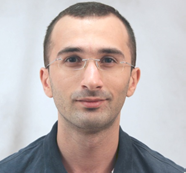Describe some of the steps you took to obtain your internship
The National Renewable Energy Laboratory (NREL) in Golden Colorado approached our research center, the Center for Advanced Power Systems (CAPS) at FSU, looking for a student with specific skills in using real-time simulators in order to finish up a project they were working on. So I was nominated for the position by my advisor, Dr. Omar Faruque, which spanned only 4 weeks in Summer 2015. Then due to the quality of the work that I was successful in accomplishing within that short period of time, I was offered another internship for a longer period of time that spanned three months in Summer 2016. So I stayed in touch with NREL and was able to go there for the summer of 2016 and work on high level projects.
Describe some of your responsibilities or duties during the internship experience.
During the internship I was working on two Department of Energy (DOE) funded projects in collaboration with power utilities based in California. Some of my responsibilities included designing, modeling, and implementing compensators to ensure the accuracy and stability of power hardware-in-the-loop (PHIL) experiments. I also set up a PHIL testbed at the Energy Integration Systems Facility (ESIF) at NREL for testing solar energy systems and modeling electrical networks. In addition, I modeled a real California-based distribution network using the Real-time Digital Simulator (RTDS). My responsibilities also included co-authoring a conference paper to present part of our work and leading the efforts to write a journal paper in order to publish our results in an electrical engineering journal.
What was a typical day like?
My typical day at NREL started at 7:00 am to 6:00 pm. My time each day was divided between work meetings and experimental/research work. The research work consists of spending time in the office reading and learning new theories and researching scientific and engineering journals for some work that we can take advantage of for the purposes of our projects. And the experimental work consisted of spending time in the Laboratories and working with fellow electrical engineers to setup the hardware experiment and build software models/codes in order to test our lab setups.
What are some major takeaways from your experience? How will these help prepare you for the next step after graduation?
I learned a lot at NREL. I gained major skills in terms of experimental skills that I can apply when working in the lab and becoming an electrical qualified worker. I have also learned a lot in terms of engineering theories and how to apply those theories in the real applications. Moreover, I learned a lot from the professional environment, meetings, seminars and conferences that I was able to attend and thus I was able to make a lot of connections in laboratories and companies. I also learned how to communicate my work to non-technical audience and thus simplify complex ideas and make them appealing for the public. All these skills have made me more aware of what companies, utilities and labs look for when hiring their staff.
Did this experience help clarify your career path? How so?
Yes, this experience did help clarify my career path! I collaborated with colleagues from around the country. These colleagues are potential graduate school advisors. I will be contacting them to see if they would be interested in taking me in as a graduate student to pursue a Ph.D. This experience also solidified my admiration for chemical oceanography by immersing me into the field.

Ali Hariri
“I learned a lot from the professional environment, meetings, seminars, and conferences that I was able to attend and I was able to make a lot of connections in laboratories and companies.”
Major: Ph.D. Candidate in Electrical Engineering, Class of 2017
Internship Experience: The National Renewable Energy Laboratory (NREL), Summer 2016



